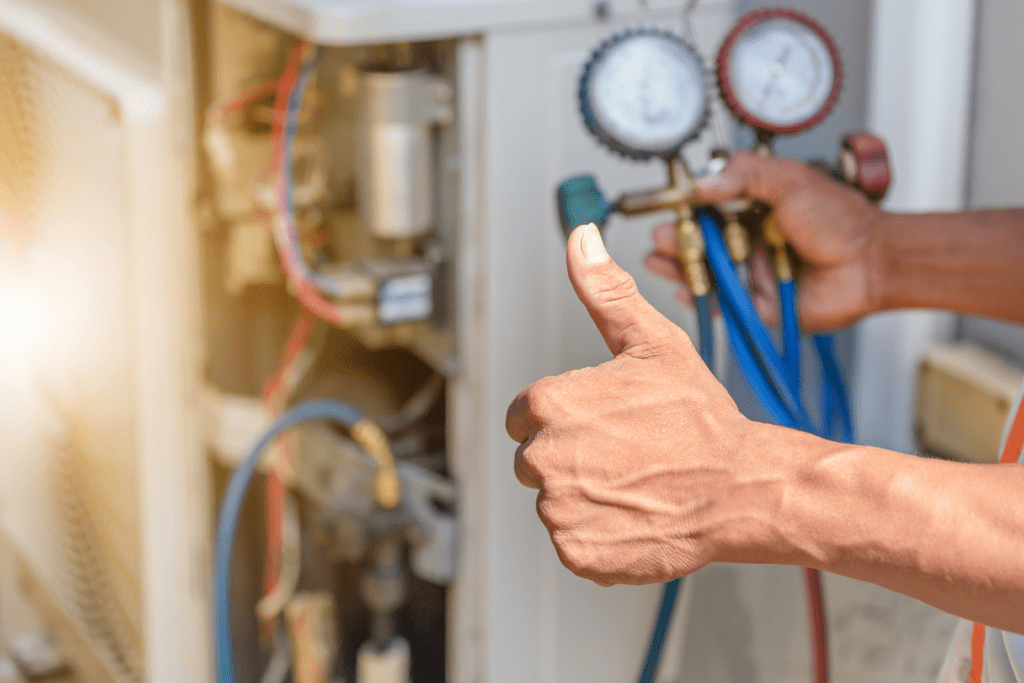
Troubleshooting Noisy HVAC Systems: Common Causes and Repair Solutions
A well-functioning HVAC (heating, ventilation, and air conditioning) system is essential for maintaining a comfortable indoor environment, regardless of the season. However, when your HVAC system starts making strange or loud noises, it can be both annoying and indicative of underlying problems. Identifying the source of the noise and addressing it promptly can prevent more serious issues and costly repairs down the line. This comprehensive guide will explore common causes of noisy HVAC systems and provide practical repair solutions to help you restore peace and efficiency to your home.
Understanding the Types of HVAC Noises
Before diving into specific causes and solutions, it’s important to understand the different types of noises your HVAC system might make and what they could mean. Here are some common sounds you might hear:
1. Banging or Clanking
Banging or clanking noises often indicate that a part within the system is loose or broken. This could be due to a loose fan blade, motor mount, or other components that have come loose and are hitting other parts of the system.
2. Hissing
A hissing sound typically indicates a refrigerant leak or a problem with the ductwork. If the hissing sound is accompanied by reduced cooling efficiency, a refrigerant leak is likely the cause.
3. Screeching or Squealing
Screeching or squealing noises are often caused by issues with the blower motor or fan belt. These sounds can indicate that the belt is worn out or that the motor bearings need lubrication.
4. Rattling
Rattling sounds can result from loose components within the system, such as screws, panels, or ductwork. It may also indicate debris or dirt trapped inside the unit.
5. Clicking
A clicking noise can be normal when the system turns on or off, but persistent clicking may indicate an electrical issue, such as a faulty thermostat or relay.
6. Buzzing
Buzzing noises are often associated with electrical problems, such as loose wiring or a failing capacitor. It can also indicate an issue with the fan motor or compressor.

Common Causes of Noisy HVAC Systems
Loose or Damaged Components
One of the most common causes of noise in HVAC systems is loose or damaged components. Over time, vibrations from the system can cause screws, bolts, and panels to become loose. Additionally, parts such as fan blades, motors, and belts can wear out or become damaged, leading to banging or rattling noises.
Solution: Inspect the system for any loose or damaged components and tighten or replace them as needed. Regular maintenance can help prevent these issues by ensuring all parts are secure and in good condition.
Refrigerant Leaks
Refrigerant leaks can cause a hissing sound and lead to reduced cooling efficiency. Low refrigerant levels can also cause the system to work harder, leading to increased noise and energy consumption.
Solution: If you suspect a refrigerant leak, it’s important to contact a professional HVAC technician to diagnose and repair the issue. Handling refrigerant requires specialized knowledge and equipment, and improper handling can be hazardous.
Worn or Misaligned Fan Belt
The fan belt in your HVAC system can become worn, cracked, or misaligned over time, leading to screeching or squealing noises. A worn belt may also affect the system’s efficiency and lead to overheating.
Solution: Inspect the fan belt for signs of wear or damage and replace it if necessary. Ensure that the belt is properly aligned to prevent future issues. Regular maintenance can help identify belt problems before they cause significant damage.
Dirty or Clogged Filters
Dirty or clogged air filters can restrict airflow, causing the system to work harder and produce unusual noises. This can also lead to increased energy consumption and reduced indoor air quality.
Solution: Check and replace your air filters regularly, ideally every 1-3 months, depending on usage and the type of filter. Keeping filters clean can improve airflow, reduce noise, and enhance system efficiency.

Ductwork Issues
Rattling or banging noises can be caused by issues with the ductwork, such as loose or damaged ducts. Ducts that are too small or poorly designed can also create noise as air flows through them.
Solution: Inspect the ductwork for any loose or damaged sections and secure or repair them as needed. If noise persists, consider consulting with a professional to assess the ductwork design and make necessary adjustments.
Electrical Problems
Buzzing or clicking noises can indicate electrical issues within the HVAC system, such as loose wiring, a failing capacitor, or a malfunctioning thermostat.
Solution: Electrical problems should be addressed by a qualified HVAC technician to ensure safety and proper repair. Regular inspections can help identify and address electrical issues before they lead to system failure.
Preventative Maintenance for Quiet HVAC Operation
Regular maintenance is key to preventing noisy HVAC systems and ensuring optimal performance. Here are some preventative maintenance tips to keep your system running smoothly and quietly:
Schedule Regular Inspections
Schedule regular HVAC inspections with a professional technician to identify and address potential issues before they become serious problems. A technician can check for loose components, worn parts, refrigerant levels, and electrical connections.
Clean and Replace Filters
Regularly clean or replace air filters to maintain proper airflow and reduce strain on the system. Clean filters can improve efficiency, reduce noise, and enhance indoor air quality.
Lubricate Moving Parts
Lubricate moving parts, such as motor bearings and fan blades, to reduce friction and prevent wear. Proper lubrication can extend the lifespan of components and reduce noise.
Tighten Loose Components
Regularly inspect and tighten any loose screws, bolts, or panels within the system. This can prevent rattling and banging noises and ensure the system operates smoothly.
Inspect Ductwork
Inspect the ductwork for leaks, loose connections, or damage. Seal any leaks with duct tape or sealant and secure loose sections to prevent noise and improve efficiency.

When to Call a Professional
While some noise issues can be addressed with basic maintenance and HVAC repairs, certain problems require the expertise of a professional technician. Consider calling a professional if you encounter any of the following:
- Persistent Noise: If the noise persists despite basic maintenance efforts, a professional can diagnose and resolve underlying issues.
- Refrigerant Leaks: Handling refrigerant requires specialized knowledge and equipment, making professional repair necessary.
- Electrical Issues: Electrical problems should be addressed by a qualified technician to ensure safety and proper repair.
- Complex Repairs: Complex issues, such as compressor problems or significant ductwork modifications, should be handled by a professional to ensure proper resolution.
A noisy HVAC system can be more than just a nuisance—it can indicate underlying issues that need to be addressed to prevent further damage and ensure optimal performance. By understanding the common causes of HVAC noise and implementing practical repair solutions, you can keep your system running quietly and efficiently.
Regular maintenance, including cleaning filters, tightening loose components, and scheduling professional inspections, can help prevent noise issues and extend the lifespan of your HVAC system. By staying proactive and addressing noise problems promptly, you can enjoy a comfortable and peaceful indoor environment year-round.




Leave a Reply